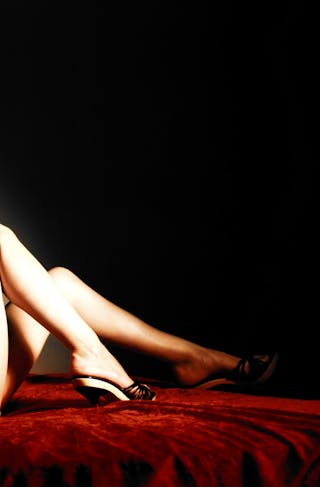Understanding the Bisexual Meaning: 11 Common Misconceptions About Bisexuals That Are Totally Wrong
Have you ever wondered about the truth behind common misconceptions about bisexuality? It's time to set the record straight and bust those myths once and for all. Whether you're bisexual yourself or just curious about the topic, it's important to educate yourself and challenge these stereotypes. Check out this insightful article for a deeper understanding of bisexuality and why it's important to debunk these misconceptions here.
Bisexuality is a sexual orientation that is often misunderstood and misrepresented. There are many misconceptions about bisexual individuals that need to be addressed in order to create a more inclusive and accepting society. In this article, we will explore 11 common misconceptions about bisexuals that are totally wrong.
Misconception #1: Bisexuals are Greedy or Promiscuous
One of the most common misconceptions about bisexual individuals is that they are greedy or promiscuous. This stereotype suggests that bisexuals are unable to commit to one partner and are constantly seeking new sexual experiences. In reality, bisexuality is simply a sexual orientation, and it does not dictate a person's behavior or morals. Just like any other sexual orientation, bisexual individuals are capable of forming meaningful and committed relationships.
Misconception #2: Bisexuals are Confused
Another harmful misconception about bisexuals is that they are confused about their sexuality. This belief suggests that bisexual individuals are unable to make up their minds about their attractions to different genders. In reality, bisexuality is a valid and legitimate sexual orientation, and bisexual individuals are fully aware of their attractions.
Explore exciting encounters in Baton Rouge
Misconception #3: Bisexuals are Indecisive
Some people believe that bisexual individuals are indecisive and unable to choose a side when it comes to their sexual orientation. This misconception implies that bisexual individuals are simply going through a phase and will eventually "pick a side." In reality, bisexuality is a distinct and valid sexual orientation that is not defined by indecisiveness.
Misconception #4: Bisexuals are Unfaithful
Another common misconception about bisexual individuals is that they are more likely to be unfaithful in relationships. This harmful stereotype suggests that bisexual individuals are incapable of being monogamous and faithful to their partners. In reality, sexual orientation does not determine a person's ability to be faithful and committed in a relationship.
Misconception #5: Bisexuals are Just Experimenting
Some people believe that bisexual individuals are just experimenting with their sexuality and will eventually identify as either gay or straight. This misconception undermines the validity of bisexuality as a legitimate sexual orientation. In reality, bisexuality is a valid and permanent sexual orientation for many individuals.
Misconception #6: Bisexuals are Attracted to Everyone
Another misconception about bisexual individuals is that they are attracted to everyone, regardless of their gender. This stereotype suggests that bisexual individuals are unable to have preferences or standards when it comes to their attractions. In reality, bisexual individuals have individual preferences and attractions, just like any other sexual orientation.
Misconception #7: Bisexuals Must Have Equal Attraction to Both Genders
Some people believe that bisexual individuals must have equal attraction to both genders in order to be considered truly bisexual. This misconception suggests that bisexuality is only valid if a person is equally attracted to men and women. In reality, bisexuality is a spectrum, and individuals may have varying degrees of attraction to different genders.
Misconception #8: Bisexuals are Just Going Through a Phase
Another harmful misconception about bisexual individuals is that they are just going through a phase and will eventually "choose" a side. This belief undermines the legitimacy of bisexuality as a valid sexual orientation. In reality, bisexuality is a permanent and legitimate sexual orientation for many individuals.
Misconception #9: Bisexuals are Heterosexual or Homosexual Individuals in Denial
Some people believe that bisexual individuals are simply heterosexual or homosexual individuals in denial about their true sexual orientation. This harmful misconception suggests that bisexuality is not a valid sexual orientation, but rather a cover for another orientation. In reality, bisexuality is a distinct and valid sexual orientation that should be respected and acknowledged.
Misconception #10: Bisexuals Are Not "Queer Enough"
Some members of the LGBTQ+ community believe that bisexual individuals are not "queer enough" to be a part of the community. This harmful belief suggests that bisexual individuals do not face the same struggles and discrimination as other members of the community. In reality, bisexual individuals face unique challenges and deserve to be included and supported within the LGBTQ+ community.
Misconception #11: Bisexuals Are Just Confused Straight People
Finally, one of the most harmful misconceptions about bisexual individuals is that they are just confused straight people who are seeking attention or trying to be "edgy." This belief undermines the legitimacy of bisexuality as a valid sexual orientation. In reality, bisexuality is a distinct and legitimate sexual orientation that should be respected and acknowledged.
In conclusion, it is important to address and debunk these common misconceptions about bisexual individuals in order to create a more inclusive and accepting society. Bisexuality is a valid and legitimate sexual orientation that deserves to be respected and acknowledged. It is crucial for individuals to educate themselves and challenge these harmful stereotypes in order to create a more supportive and inclusive environment for bisexual individuals.
- https://sex-guide.ua-sex.com/posts/intimacy-what-is-sexual-intimacy/
- https://singles-website.thehottieandthenottie.com/
- https://location-dating.thehottieandthenottie.com/posts/7-outrageous-rebound-sex-confessions/
- https://meet-singles.thehottieandthenottie.com/posts/honeymoon-sex-stories-how-much-sex-couples-had-on-their-honeymoon/
- https://singles-website.fu-direct.net/posts/my-best-sex-ever-was-in-a-castle/
- https://dating-services.ua-sex.com/posts/chrishells-breakup-shows-the-need-for-shared-relationship-goals/
- https://singles.getweps.com/posts/muslim-women-talk-navigating-sexuality-on-their-own-terms/
- https://chat.thehottieandthenottie.com/posts/wand-vibrators-best-sex-wands/
- https://singles-website.timebombrecordings.com/posts/a-man-bought-his-wife-the-disneyland-bench-he-proposed-to-her-on-and-im-not-crying/
- https://meet-singles.campsupernow.com/posts/sex-tips-for-temperature-play-using-ice-and-heat-in-sex/
- https://find-singles.themountaintopplay.com/posts/sexpositive-5-women-and-nonbinary-people-on-what-it-means/
- https://find-a-girlfriend.themountaintopplay.com/posts/what-is-the-ankles-as-earrings-tiktok-sex-position/
- https://online-personals.themountaintopplay.com/posts/my-best-sex-ever-was-in-a-castle/
- https://hookupguide.campsupernow.com/posts/how-to-do-the-corkscrew-position-a-sex-expert-explains/
